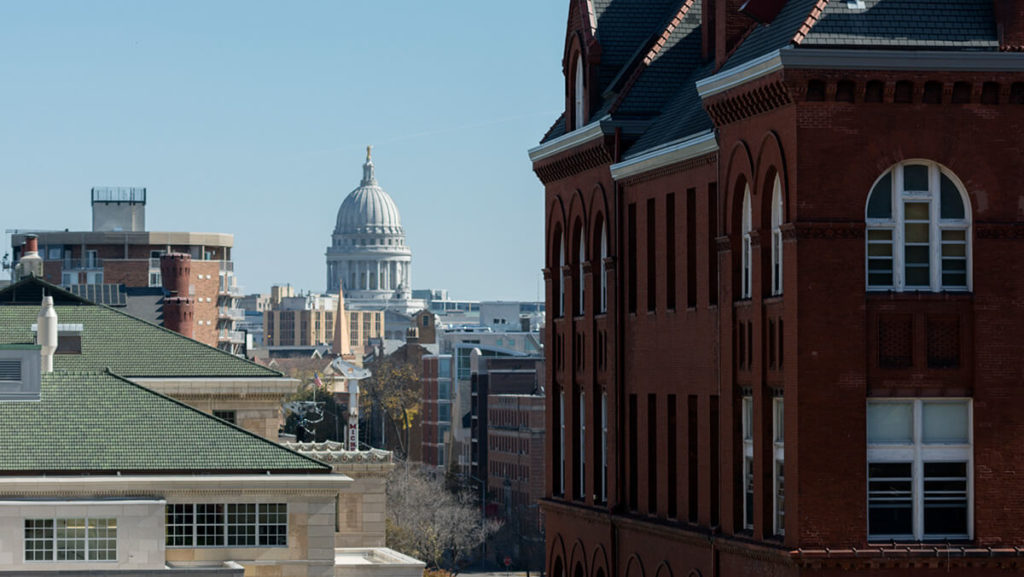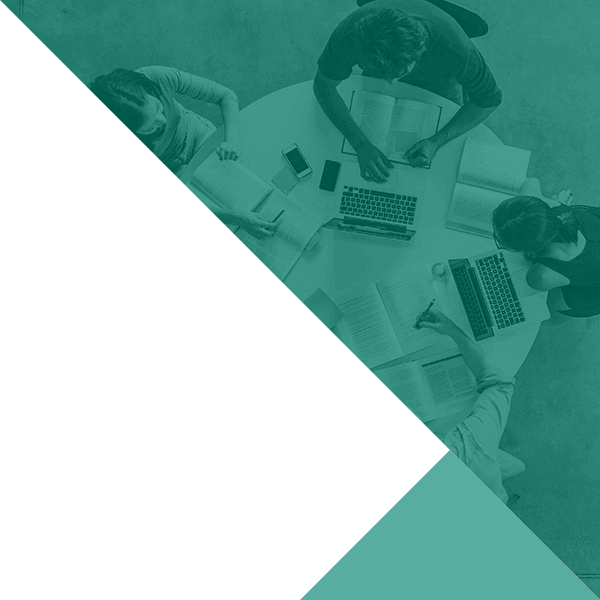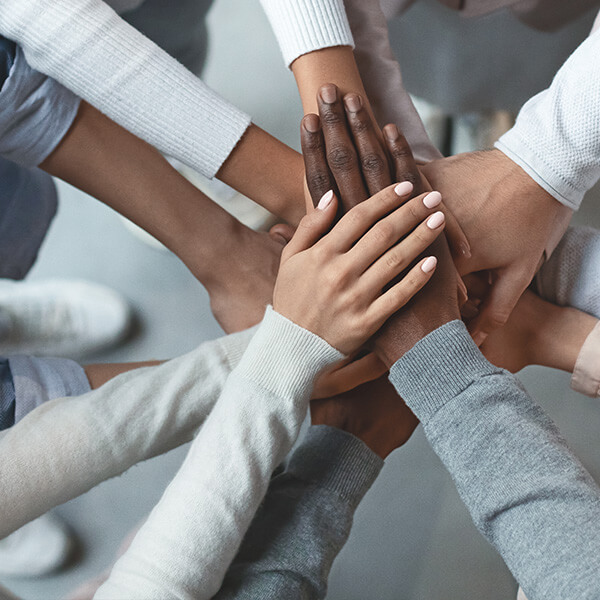1.0 Partnership Overview
The WI BID partnership was an existing partnership between an R1 research university and a public engagement with science program housed on the UW-Madison campus.
The Wisconsin BID partnership was an established partnership at the onset of this project. The BID project allowed the partners to dive deep into the nuances of the existing partners and their programs, and to expand and hopefully “institutionalize” the activities. The primary activities that flourished under the BID grant include the WI Idea STEM Fellows program and the BI website serving as a campus resource for Broader Impacts to help establish pathways for broader impacts planning and implementation.
The broaderimpacts.wisc.edu website created by the BID project is a repository of many programs, partners, and resources on the UW-Madison campus and offers clear and effective guidance on developing a BI plan for NSF grant proposals.
The WI Idea STEM Fellows program is the local Portal to the Public initiative. We modified it to meet the demands and culture of the UW-Madison community. It is a cohort-based four (online due to COVID) or eight hour (in person prior and post COVID) that emphasizes cohort interactions and feedback and individual BI Identity that is intended to lead to a career trajectory in sharing of one’s science or engineering research.
2.0 Reflections from the Partnership
In what ways did the partnership change the way you think about your own organization’s approach to BI or BI support? In what ways did individual PIs learn or improve their practice? How did you or your organization learn or improve your BI practice?
The Wisconsin BID team built upon, expanded, and refined existing outreach and engagement programs and networks as well as forging new partnerships at UW-Madison. This vignette will describe several efforts of the BID team. One story is with campus partnerships and a second story is with our Wisconsin Idea STEM Fellows program. The third story we share is the development of resource materials for developing effective partnerships from the perspective of both researchers and community members. Partnerships are essential to most Broader Impacts activities. The UW-Madison campus has a vibrant, longstanding engagement and outreach community. Much of our commitment to these activities is embodied in the campus commitment to the Wisconsin Idea. The Wisconsin Idea was formulated and stated some 115 years ago by the then President of the University of Wisconsin. President Van Hise expressed that “I shall never be content until the beneficent influence of the University reaches every family of the state.” We-faculty, staff, and students- are all committed to working individually and collectively to fulfill our commitment to the Wisconsin Idea. One nugget learned during the beginning of the BID project was that identifying the key touch points and individuals in the large system of the UW-Madison is key to amplification and sharing of the resources and increase the value that we can offer researchers. One example of the cascading impact of the BID project is with our College of Engineering (CoE). We early on reached out to the research office in the CoE. We fortunately found receptive deans in that office who helped promote the BID project as a valuable and needed resource for engineers writing NSF grants. This support and in fact endorsement of the BID project led to many consultations and partnerships on NSF submissions. It also led to many engineering researchers participating in our Professional Development offerings whether it was our CAREER or GRFP workshops or our Wisconsin Idea STEM Fellows program. Professional development is key to developing effective programming. The Wisconsin Idea STEM Fellows program offers guidance and support for staff, faculty, post-docs, and graduate students in learning how to develop effective activities to engage with the public. UW-Madison became a Portal to the Public institution prior to the BID grant. We did several Portal trainings of cohorts with several campus units participating in the offerings under the Wisconsin Idea STEM Fellows label. When the BID project was funded it took over the WI Idea STEM Fellows program. The BID project offers about four cohort (up to 15 individuals) training workshops per year. We have now graduated over 200 participants. The two-four hour trainings are held two weeks apart and are held in the early evening. The curriculum consists of overviews of science communication, Broader Impact Identity (credit to Julie Risien, OSU), engaging the public, and time to develop outreach/engagement activities. It is ideally an ideation to develop pilot products for researchers at all stages of their careers. Participants commit to presenting at three public events in a year to fulfill their obligations to the program. All degrees of development of the pilot projects are shared at these events. Many do many more and continue well after their year is over.
How have you worked to understand each other? When did you struggle or fail to understand one another? How did you navigate the culture and language code-switching necessary to work across organizations? How did you establish clarity around goals, timelines and roles? How did you build trust within the partnership?
The Wisconsin BID team created a set of flexible guiding documents that mapped out a timeline, researcher and partner expectations, and helped to prompt considerations of the many facets of a quality broader impact plan such as building trust and making connections with community partners early on in the proposal preparation process. An early career assistant professor was preparing her first NSF CAREER Award application and became aware of the Wisconsin BID team and solicited a meeting. At the first meeting the WI BID team staff worked collaboratively with the researcher with several BID tools. Working through the BID tool ‘Impact Identity’ helped the researcher align their broader impacts goals with their internal capacities and integrate with their research aims. As part of developing an understanding of the researcher’s impact identity several community partner organizations emerged as good candidates that matched well with the researcher’s desired impacts following the impact identity exercise. The next phase was truly exciting as another project idea developed for an NSF AISL proposal. The proposal was rich with partnerships; four community partner organizations, an evaluator, three UW-Madison research labs and one external research institute with lead roles, multiple research labs with minor contributions, and our public engagement with science programs at the Discovery Building providing an infrastructure for programming and reach of the proposed activities. After having gone through the NSF CAREER BID support process the researchers changed her practice and early on in the NSF AISL preparation phase hosted one of two early and inclusive meetings that brought together nearly all of the above listed partners on the project in planning and perspective session.
Under what circumstances (and in what ways) has the partnership decided to expand the scope of the work? Where have you adjusted or adapted to ensure the partnership work aligns with shifting organizational goals or capacity? How have you embraced reflective practice and in what ways has it supported adaptability?
The Wisconsin BID team built upon, expanded, and refined existing outreach and engagement programs and networks as well as forging new partnerships at UW-Madison. This vignette will describe several efforts of the BID team. One story is with campus partnerships and a second story is with our Wisconsin Idea STEM Fellows program. The third story we share is the development of resource materials for developing effective partnerships from the perspective of both researchers and community members. Partnerships are essential to most Broader Impacts activities. The UW-Madison campus has a vibrant, longstanding engagement and outreach community. Much of our commitment to these activities is embodied in the campus commitment to the Wisconsin Idea. The Wisconsin Idea was formulated and stated some 115 years ago by the then President of the University of Wisconsin. President Van Hise expressed that “I shall never be content until the beneficent influence of the University reaches every family of the state.” We-faculty, staff, and students- are all committed to working individually and collectively to fulfill our commitment to the Wisconsin Idea. One nugget learned during the beginning of the BID project was that identifying the key touchpoints and individuals in the large system of the UW-Madison is key to amplification and sharing of the resources and increase the value that we can offer researchers. One example of the cascading impact of the BID project is with our College of Engineering (CoE). We early on reached out to the research office in the CoE. We, fortunately, found receptive deans in that office who helped promote the BID project as a valuable and needed resource for engineers writing NSF grants. This support and in fact endorsement of the BID project led to many consultations and partnerships on NSF submissions. It also led to many engineering researchers participating in our Professional Development offerings whether it was our CAREER or GRFP workshops or our Wisconsin Idea STEM Fellows program. Professional development is key to developing effective programming. The Wisconsin Idea STEM Fellows program offers guidance and support for staff, faculty, post-docs, and graduate students in learning how to develop effective activities to engage with the public. UW-Madison became a Portal to the Public institution prior to the BID grant. We did several Portal training of cohorts with several campus units participating in the offerings under the Wisconsin Idea STEM Fellows label. When the BID project was funded it took over the WI Idea STEM Fellows program. The BID project offers about four cohorts (up to 15 individuals) training workshops per year. We have now graduated over 200 participants. The two-four hour training are held two weeks apart and are held in the early evening. The curriculum consists of overviews of science communication, Broader Impact Identity (credit to Julie Risien, OSU), engaging the public, and time to develop outreach/engagement activities. It is ideally ideation to develop pilot products for researchers at all stages of their careers. Participants commit to presenting at three public events in a year to fulfill their obligations to the program. All degrees of development of the pilot projects are shared at these events. Many do many more and continue well after their year is over. The Wisconsin BID team created a set of flexible guiding documents that mapped out a timeline, researcher and partner expectations, and helped to prompt considerations of the many facets of a quality broader impact plan such as building trust and making connections with community partners early on in the proposal preparation process. An early career assistant professor was preparing her first NSF CAREER Award application and became aware of the Wisconsin BID team and solicited a meeting. At the first meeting, the WI BID team staff worked collaboratively with the researcher with several BID tools. Working through the BID tool ‘Impact Identity’ helped the researcher align their broader impacts goals with their internal capacities and integrate with their research aims. As part of developing an understanding of the researcher’s impact identity, several community partner organizations emerged as good candidates that matched well with the researcher’s desired impacts following the impact identity exercise. The next phase was truly exciting as another project idea developed for an NSF AISL proposal. The proposal was rich with partnerships; four community partner organizations, an evaluator, three UW-Madison research labs and one external research institute with lead roles, multiple research labs with minor contributions, and our public engagement with science programs at the Discovery Building providing an infrastructure for programming and reach of the proposed activities. After having gone through the NSF CAREER BID support process the researchers changed her practice and early on in the NSF AISL preparation phase hosted one of two early and inclusive meetings that brought together nearly all of the above-listed partners on the project in planning and perspective session.



